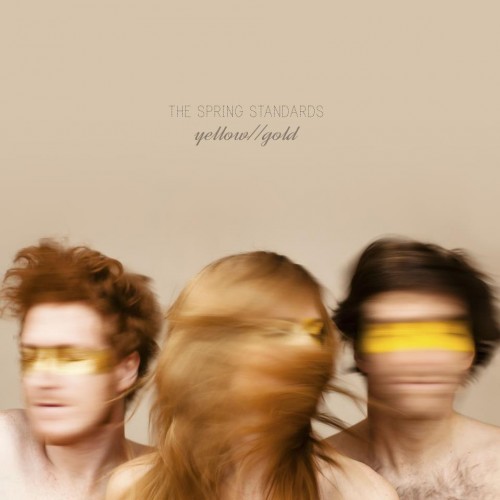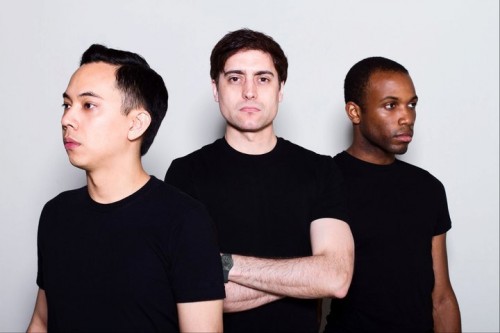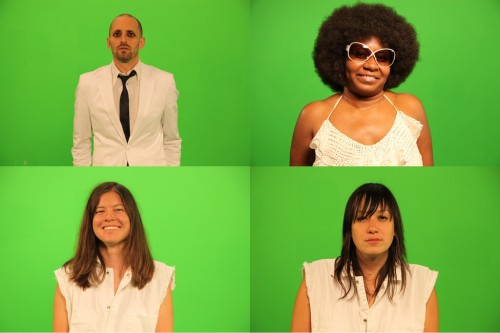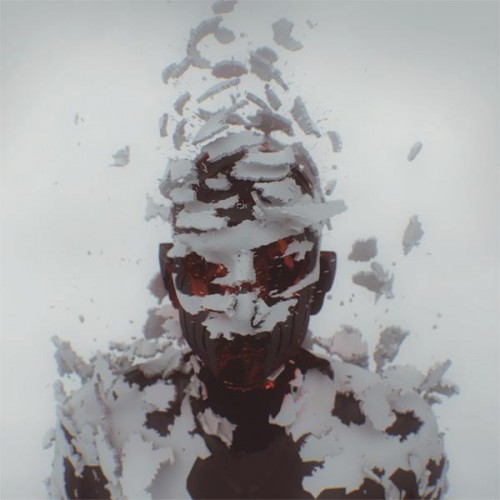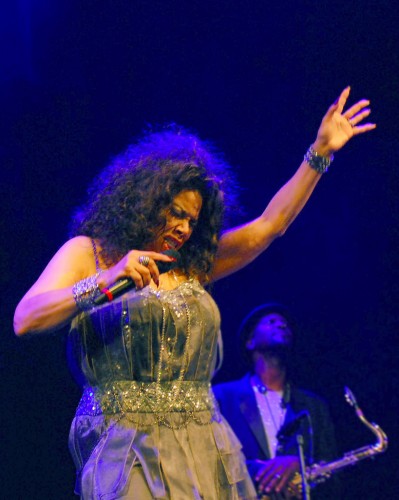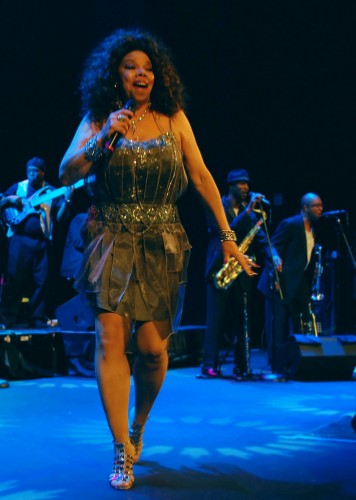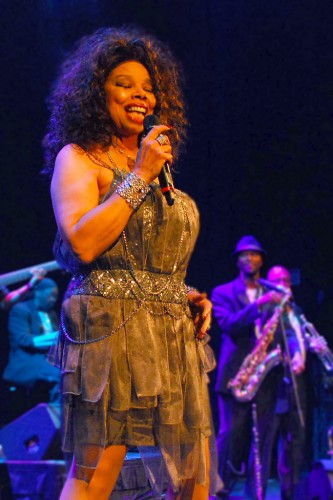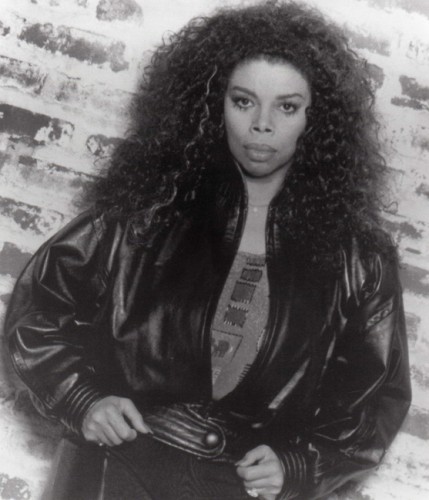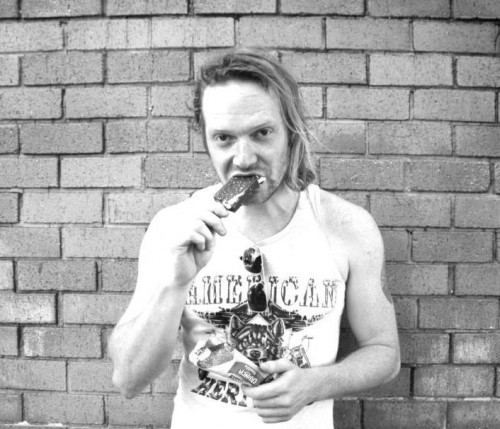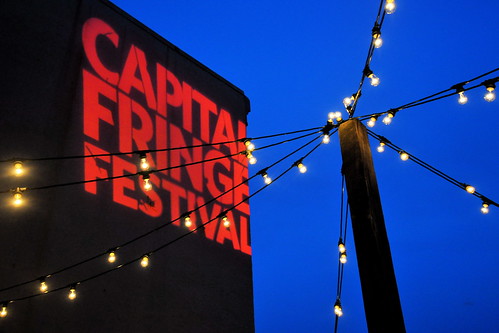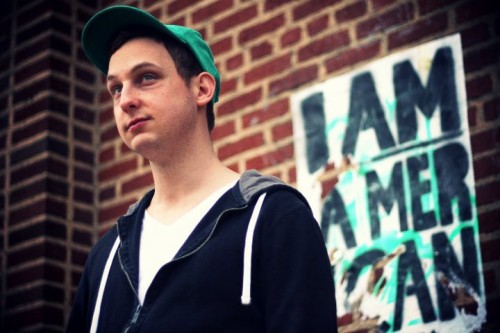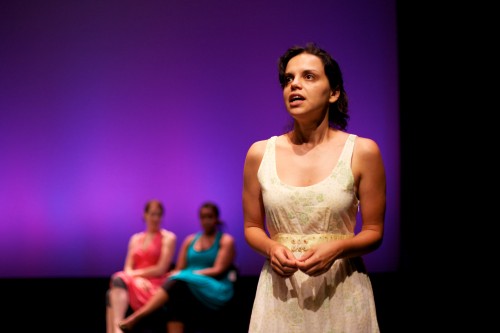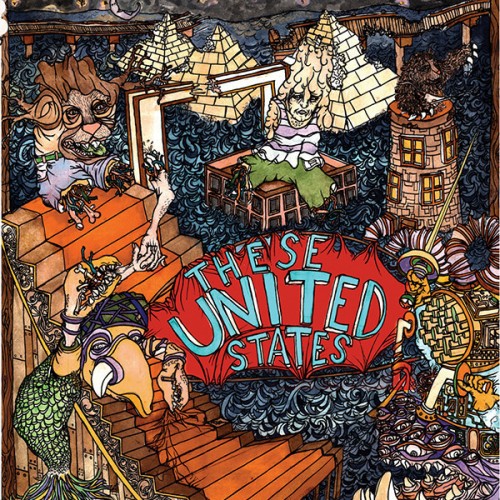French singer Laetitia Sadier has a beautiful, dreamy, captivating voice, and for about two decades was the front-woman of the London-based experimental/psychedelic/pop/lounge ensemble Stereolab. In 2010, after Stereolab went on hiatus, Sadier released her first solo album, The Trip. In July of this year she released her second solo album, Silencio. It is beautiful, introspective, lush, groovy at times, with political themes woven through. You can catch Laetitia Sadier live at DC9 this Tuesday, September 25th! We Love DC’s Alexia Kauffman was thrilled to have a conversation with Laetitia recently, and here’s how it went.
Alexia Kauffman: So what was the experience of making your most recent album, Silencio, like? And was it different from making your first solo album?
Laetitia Sadier: Oh yes, I guess it was kind of the same and it was kind of different from one to the other, but what do you want to know exactly?
Alexia: What went into making the new album, what inspired you on this album? I know you collaborated with some different people- just kind of what the experience was like?
Laetitia: Well, you know I guess the intent was to have a political content, because I find the situation – the political and financial and economical and social situation you know kind of getting worse. I mean especially the state of democracy, you know, is kind of worsening in Europe certainly, and in America, very seriously, and I thought that all should be voiced. So that was a very central concern regarding the album. But I didn’t want it to just be kind of aggressively political, you know, I have other centers of interest. I study Chinese medicine and we look at the human body, the human being in a kind of holistic way, and they are part of the universe, you know, so it is kind of on the other side of what capitalism teaches us to be, which is kind of selfish, self-centered consumer. It looks at people elementally, and I focused somehow on fire, on the fire element. And the fire in people, you know, the passion, the heart, the spirit, which are all kind of fire-related, and how these things are really essential to life, but they are things which can’t be bought. And the idea was to bring back the attention on us human beings as non-exchangeable, non-buyable beings that we are, you know, humans, and that’s a sacred notion around this that can’t be touched by money. So those were my concerns for this album, and, of course, the title “Silencio”, which, I don’t know if you heard the record?
Alexia: Yes.
Laetitia: The last track basically explains the situation as to how this title came about- it wasn’t, you know, “Shut up, everybody! Let’s have some silence around here!”, it was about connecting deeply with oneself because I think that to have a revolution you need to be connected to yourself, to your sense, to your better self, and your sense of it. And then you can derive some ideas to lead some kind of action for change, for progress, for moving forward, not being stuck in the system, which I think disconnects people from their deeper and truer natures, you see?
Alexia: That’s very powerful. I appreciate your album because I can clearly hear the political themes in it, but yet it’s beautiful and makes you want to listen to it, and I don’t know, it’s like the best kind of art where it has a message but it’s transcendent, you know?
Laetitia: Yeah, I mean to me art is about you know putting what’s the most important to you, and I guess transcend to some degree. Of course, transformation, I mean that’s the real alchemy of art. You know, art is alchemical, or it can be, it can transform your life. And I know it sure has mine. If you’re open to it, and of course it should be really kind of essential stuff, the stuff that really matters, and not the mindless stuff.
I mean listen to the radio- it’s just appalling, the quality of the music. I think it’s really about demolishing people, and their truer connection, you know their connection to themselves. It’s just soul-breaking and heart-numbing. It’s numbing, I want to protect myself from it, to not receive it, not feel it, it’s so obnoxious. I don’t know, I find it super-dangerous. So it’s true, I’m kind of reacting against that, in a way, you know, that’s my purpose, it seems.
Alexia: You have a very beautiful and distinct voice. Are there any vocalists or singers that inspired you when you were growing up or even now?
Laetitia: Yes, of course. Carmel– she was an Irish singer in the 80s, she kind of had semi-hits, but she never really took off, you know? But the first album she ever did was a six-track kind of experimental jazz piece, and it was very, very bare, and kind of badly recorded, but really good. I was fascinated, and it’s still one of my favorite records. So she was a real inspiration in terms of “I want to sing”, in terms of “Yes, this is what I want to do.” I guess Morrissey also inspired me to sing. He has an incredible voice, and I love that first album that they did, cause I’m a first album girl. And besides that, um, France Gall also really inspired me. And then there’s of course singers like Dionne Warwick- the perfection, you know? Like wow! I wish I could sing like that! Divas like that. I like distinctive vocals. I like white women that sound like black women- I really like that. And I like an open and sincere voice, you know? We can hear the heart and the personality of the person, rather than a super-trained voice, you know, a super-technically-apt, but kind of affected, rather than natural. So that’s what I am most attracted to.
Alexia: Are there any artists right now or albums or songs that really catch you currently?
Laetitia: I’m a big fan of the French band called Holden. They really, really touch me- their music really touches me. And they’re about to release a new record, and I saw them live recently, and they really really blew me away- so much grace and beauty. They played some new songs, and I’m like “Oh my God! They’re doing it again!” I played the record by Connan Mockasin, which is really interesting and fun to listen to. Continue reading
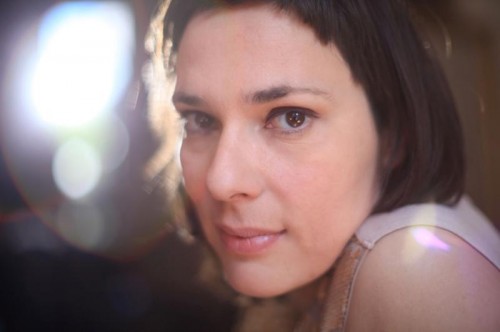
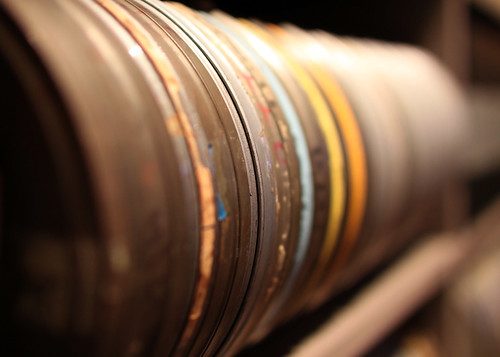
![Tony Mendez c. Joanna Mendez[1]](http://www.welovedc.com/wp-content/uploads/2012/09/Tony-Mendez-c.-Joanna-Mendez1-333x500.jpg)

